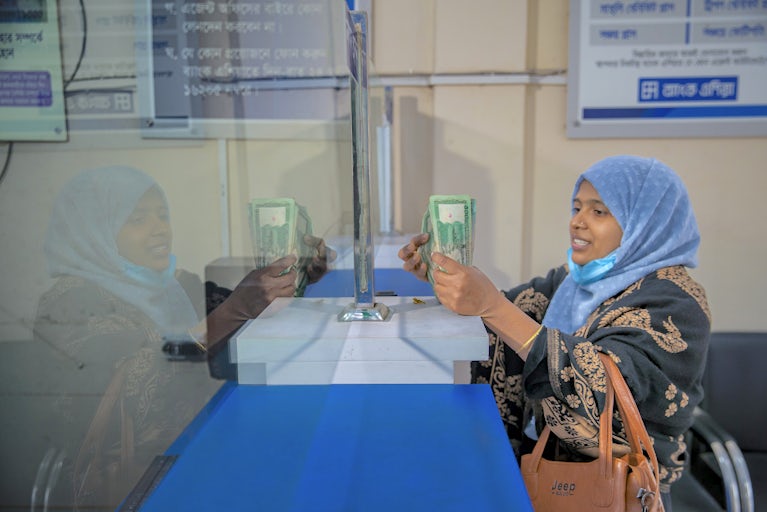
How Financial Inclusion Reduces Poverty and Income Inequality
In a world where 1.4 billion people remain unbanked, Heifer is spearheading financial inclusion to combat global poverty and income disparities.
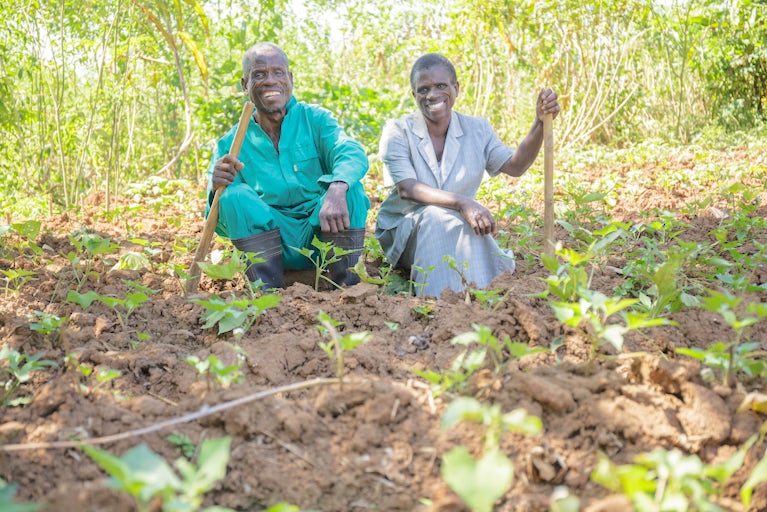

We help farmers build profitable agribusinesses to earn income, overcome poverty and feed their families.

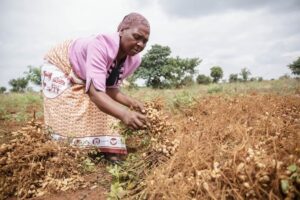
Malawi, a sovereign state in southern Africa, borders Tanzania, Zambia, and Mozambique. It has enjoyed 60 years of self-rule since gaining independence from the British protectorate. The landlocked country, covering 118,484 square kilometers, is classified as one of the least developed by the United Nations’ 2024 review. Vulnerable to economic shocks and environmental disasters, Malawi faces challenges such as low education, food shortages, weak markets and climate shocks. Seventy percent of Malawians still live below the poverty line due to high unemployment and economic instability. Despite these issues, 80 percent of the population is under 35, presenting opportunities to address agricultural and food system challenges through technology and innovation.
The agriculture sector employs more than 80 percent of the population, primarily as smallholder subsistence farmers. To take advantage of the sector’s potential and transition from subsistence farming to agribusiness entrepreneurship, smallholder farmers and farmer organizations need financial and technical support. The provision of this support will improve production, build resilience to climate change, enhance business management capacities, increase access to capital and financial services and gain access to profitable and inclusive markets.
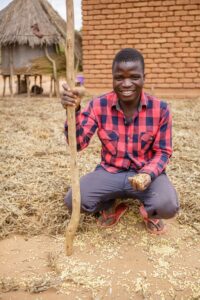
Heifer Malawi integrates social capital development with a market-centered value chain approach to create an enabling environment for family well-being and economic growth. This approach ensures development is locally led, enabling families, project participants, and other stakeholders to find solutions to the challenges they face in the market system while addressing systems-based, push-and-pull factors that discourage smallholder farmers’ participation in the agricultural economy.
Heifer Malawi facilitates value chain development and empowers farmer organizations to help communities build long-term resilience. This effort includes improving smallholder organizations’ business management and institutional capacity, facilitating access to finance for loans and investments, supporting farmers to boost production and productivity and enhancing connections to structured markets. Heifer Malawi’s targeted value chains create jobs and opportunities for women and youth, increasing their incomes to better support their families.
Our primary objective is helping families achieve a sustainable living income, our measure for the amount of money required for a decent life — including safe shelter, nutritious food, clothing, education and health care — while also reaching additional benchmarks for economic and climate resilience.
Year Heifer launched in Malawi
Household participants in 2024
Household participants to date
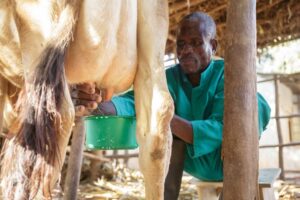
Heifer International’s work is organized at the country level into Signature Programs focused on large-scale, measurable and sustainable impact achieved by building partnerships at all levels. Each program supports farmers through time-bound projects designed to increase their household income.
The Malawi Accelerate Signature Program (MASP) is focused on building the economic resilience of 500,000 smallholder farmers so they can achieve a sustainable living income by 2030. The program uses a market-centered approach to improve agricultural efficiency, reduce market failures and create opportunities for smallholder farmers in the beef, dairy, banana, rice, poultry and oilseeds value chains.
Project timeline: 2023–2025
The Enhancing Community Based Financial Organizations II
project works to improve the financial inclusion of the targeted 18,000 participants to create a foundation for economic and business resilience by building the operational capacity of existing community-based financial organizations and improving connections to the formal financial sector. These organizations, also known as village savings and loans associations, function as financial institutions in many communities due to the absence of formal banking systems at the grassroots level. The project also strengthens linkages between community-based financial organizations, private-sector actors and off-takers in the dairy, oilseeds and banana value chains.
Project timeline: 2021–2025
The Climate Resilience Rural Livelihood Programme Malawi-Mozambique II project aims to build the resilience of rural communities and develop sustainable food systems. The project supports 11,000 smallholder farmers in diversifying production through climate-smart farming methods and improving access to finance via formal financial institutions. This initiative seeks to strengthen local food systems and demonstrate sustainable improvements in food security, income and resilience to climate change. Funded by the Royal Norwegian Agency for Development Cooperation (NORAD) and the Development Fund of Norway, the project is designed to support agriculture-dependent rural communities.
Project timeline: 2022–2026
The Creating Wealth in Malawi through Digital Solutions and Investment: Land Registry, Groundnut Productivity and Market Alliances (nDi-Chuma) project is focused on increasing the relevance and accessibility of digital tools and services for smallholder groundnut farmers. The project aims to provide a suite of digital tools tailored to the business priorities of smallholders, helping them reduce costs, minimize risks, and increase efficiency and profits to operate more effectively within the digital economy and the groundnut value chain. The project also targets 2,000 households with the aim of strengthening women’s productive assets and influence in their households and cooperatives.
Project timeline: 2022–2026
The Smallholder Farmers in Groundnuts and Beef Value Chain in Kasungu and Mzimba Increase Access to Markets (GAIN) project addresses push-and-pull factors to facilitate well-functioning markets for smallholder farmers. To build farmers’ capacity to productively engage in agricultural markets (the push), the project increases 14,000 farmers’ access to business development services, strengthens cooperatives’ performance, and improves finance access for farmers and cooperatives. The project also pulls farmers and their cooperatives into the economy through activities reinforcing market dynamics and reliable access to buyers. Integrated with this approach is the creation of on- and off-farm jobs and a clear focus on incorporating women in both value chains.

In a world where 1.4 billion people remain unbanked, Heifer is spearheading financial inclusion to combat global poverty and income disparities.
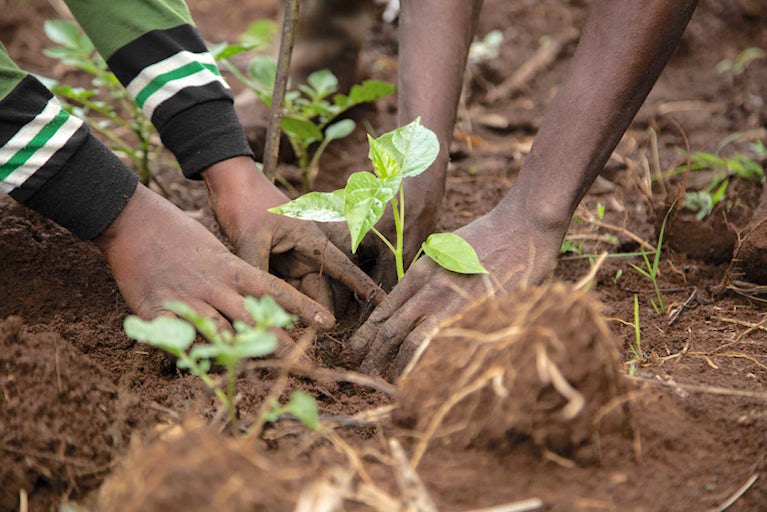
Agriculture contributes heavily to the GDP of many African countries and it employs more than half of the rural population across the continent
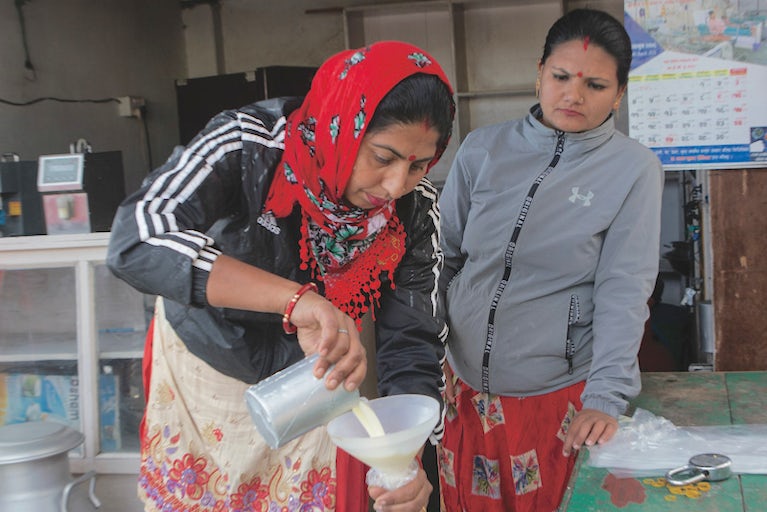
This fact sheet explains Heifer’s locally led development approach, defines sustainable locally led development, and discusses why this approach is important.
George Munulo, Groundnut Farmer and Participant, Financial Access for Rural Markets, Smallholders and Enterprise (FARMSE) II
Cart is empty
Success!
Please be patient while we send you to a confirmation page.
We are unable to process your request. Please try again, or view common solutions on our help page. You can also contact our Donor Services team at 855.9HUNGER (855.948.6437).
Covering the transaction fee helps offset processing and administrative fees that we incur through taking payments online. Covering the transaction fee for each payment helps offset processing and administrative fees that we incur through taking payments online. Covering the transaction fee for each payment helps offset processing and administrative fees that we incur through taking payments online.